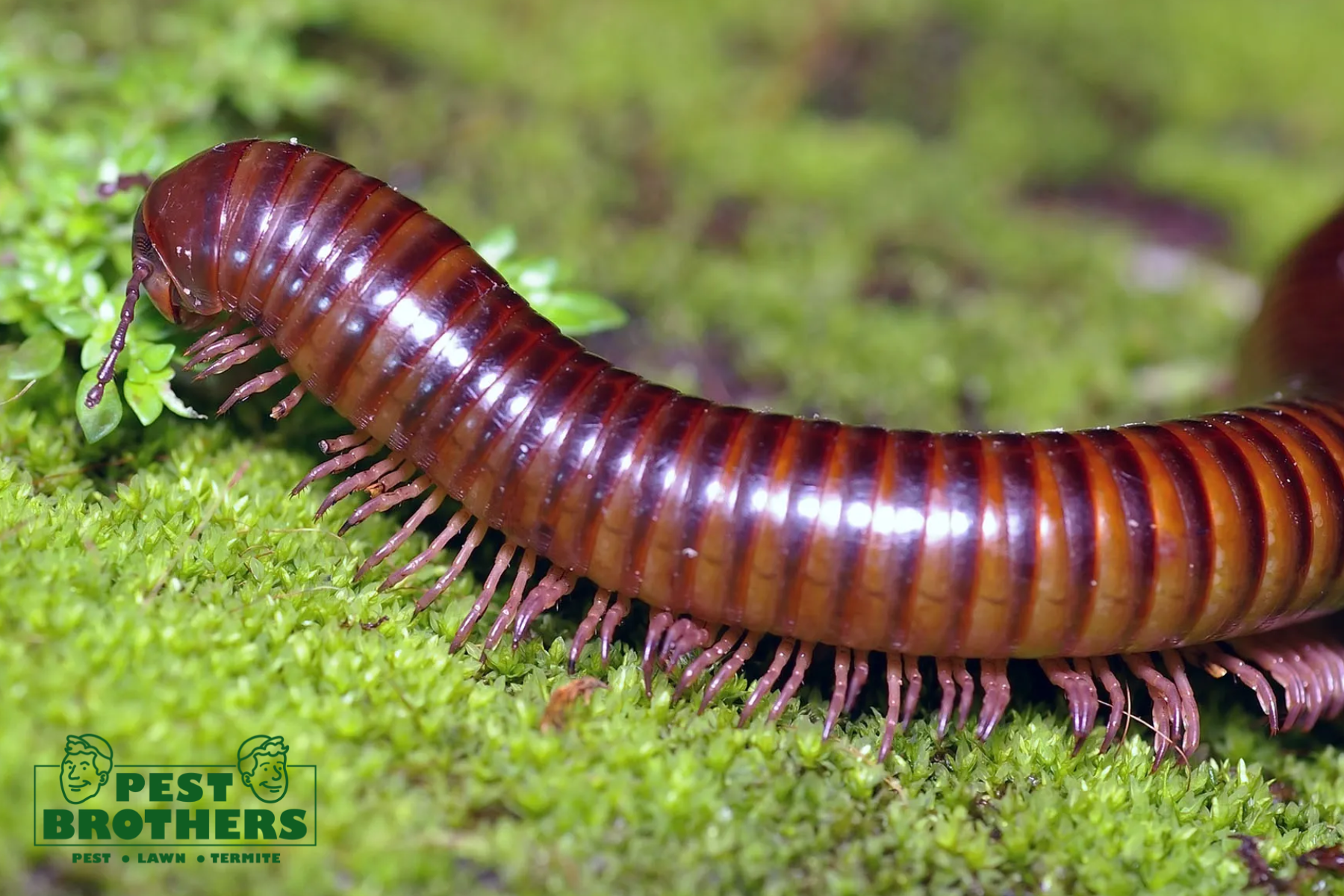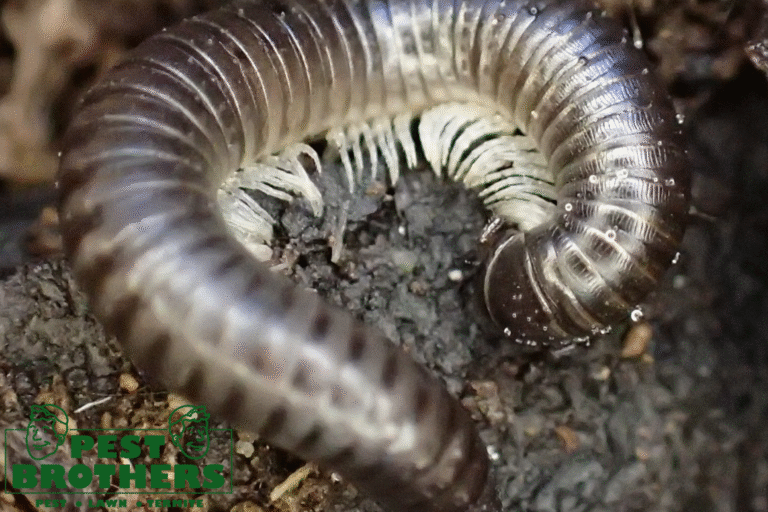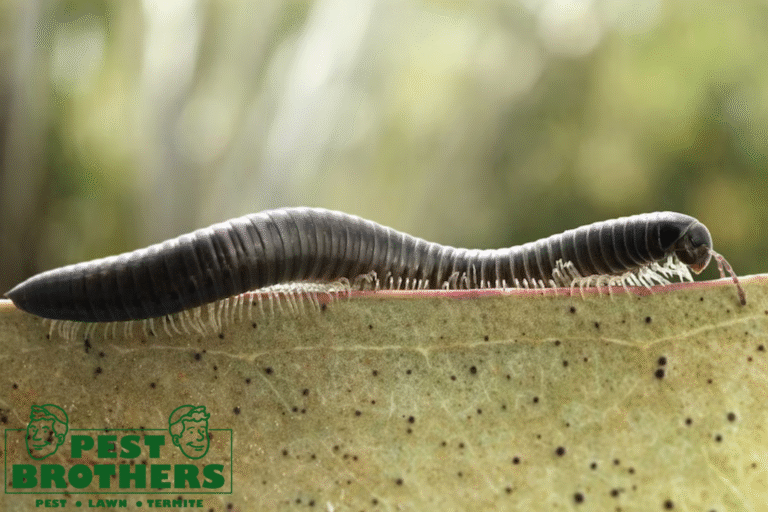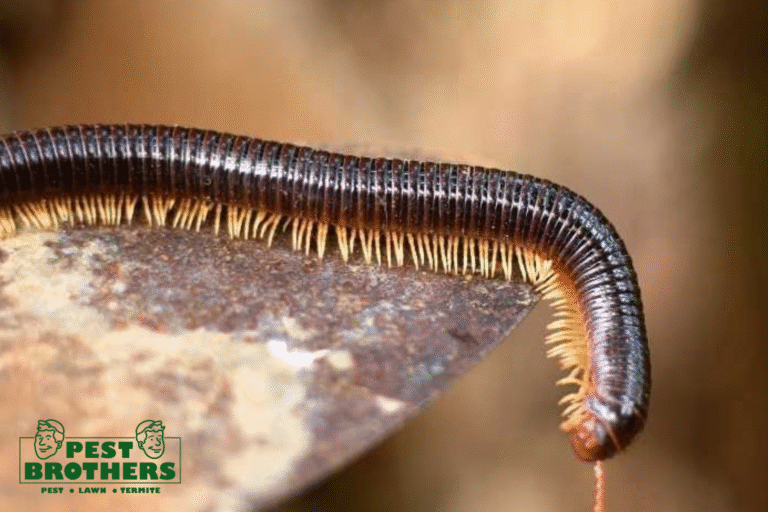Millipedes are some of the most misunderstood pests found in homes and gardens. With their long, segmented bodies and many legs, they might look intimidating, but the truth is that millipedes are primarily harmless decomposers. Understanding what do millipedes eat can help you better manage their presence and prevent infestations in and around your home.
What Does a Millipede Eat?
Millipedes are detritivores, meaning they feed primarily on decaying organic matter. Their diet includes:
- Decomposing plant material: This is their main food source, such as rotting leaves, wood, and mulch.
- Fungi and algae: Millipedes often consume fungus and molds that form on decaying plants or damp surfaces.
- Dead insects and other decomposing animal matter: While not a preferred food, they can consume dead insects when available.
Millipedes play an essential role in the ecosystem by breaking down decaying organic material, turning it into nutrient-rich soil. By consuming dead plant matter and fungi, they help maintain healthy soil and promote plant growth.
Are Millipedes Harmful to Gardens?
Generally, millipedes do not harm living plants. They prefer dead or decomposing matter. However, in large numbers or under stress (like drought or food scarcity), some species may feed on seedlings, roots, or soft fruits. This is rare and usually not a major concern for most gardeners.
If you’re spotting millipedes in garden beds or near mulch piles, it’s usually a sign of healthy soil rich in organic matter. That said, their population can become problematic when they migrate indoors in search of shelter, especially during wet seasons.
Why Are Millipedes in My Home?
Millipedes are moisture-loving pests. When outdoor conditions become unfavorable—such as heavy rains or extreme drought—they may move indoors. Once inside, they seek damp environments like:
- Basements
- Crawl spaces
- Bathrooms
- Laundry rooms
While they do not bite, sting, or damage property, their sudden appearance can be unsettling. Understanding what does a millipede eat? Can help you limit their food sources and prevent infestations. By managing their access to decaying organic matter, you can deter them from invading your home.
How to Prevent Millipedes from Entering Your Home
While millipedes are more of a nuisance than a danger, prevention is key to keeping them out. Here are some effective ways to reduce the chances of a millipede invasion:
- Reduce Moisture
Millipedes thrive in moist environments. Ensure your home is well-ventilated and dry, especially in basements and crawlspaces. Use dehumidifiers where necessary. - Clear Organic Debris
Millipedes feed on decaying plant matter. Rake up leaves, remove mulch that touches the home’s foundation, and clean up any grass clippings or compost. - Seal Entry Points
Inspect your home’s foundation, doors, and windows for gaps or cracks. Sealing these openings can help prevent millipedes and other pests from entering. - Fix Drainage Issues
Poor drainage can create the perfect breeding ground for millipedes. Make sure gutters are clear, downspouts direct water away from your home, and that your yard has proper grading.
What to Do If You Have a Millipede Infestation
If millipedes have found their way indoors in significant numbers, it may be time to consult professionals. A licensed technician can evaluate the infestation and apply targeted treatments that are safe and effective.
For those in South Florida, searching for millipede control near me is a smart step. Local pest experts understand regional conditions and can tailor a solution to your specific needs.
Integrated Pest Management for Millipedes
Rather than relying on harsh solutions, professional pest control companies like Pest Brothers, Inc. focus on Integrated Pest Management (IPM). This approach uses a combination of inspection, prevention, and environmentally friendly and safe pesticide application to reduce and eliminate pests without harming the environment or your health.
IPM for millipedes involves:
- A thorough inspection of your home and property
- Identification of entry points and moisture sources
- Customized treatment application to target millipedes
- Follow-up services if necessary
Real-Life Example: Pest Brothers’ Successful Service in South Florida
“Amazing job from this company! I had termite service with Pest Brothers on 07/25, and I had Mr. Rene Martinez there being super kind and professional. He accommodated me with all my requests and concerns. They gave me a very reasonable price, which I loved. I would recommend them to anybody in need of this service with no hesitation. Thank you so much.”
-James
This is just one of many testimonials from our satisfied clients. At Pest Brothers, we prioritize customer service and offer tailored solutions to prevent millipede and other pest infestations in your home.
Professional Help in South Florida
Millipede infestations can be a sign of broader moisture or pest issues. If you’re dealing with recurring millipede problems, a comprehensive pest control solution is your best defense. Local providers of pest control Homestead FL are well-equipped to identify the source of the problem and implement lasting solutions.
Choosing reliable Homestead pest control ensures that you’re working with experts who understand the specific pest pressures in your area. They’ll also know how to manage millipedes without disrupting the natural ecosystem of your home or yard.
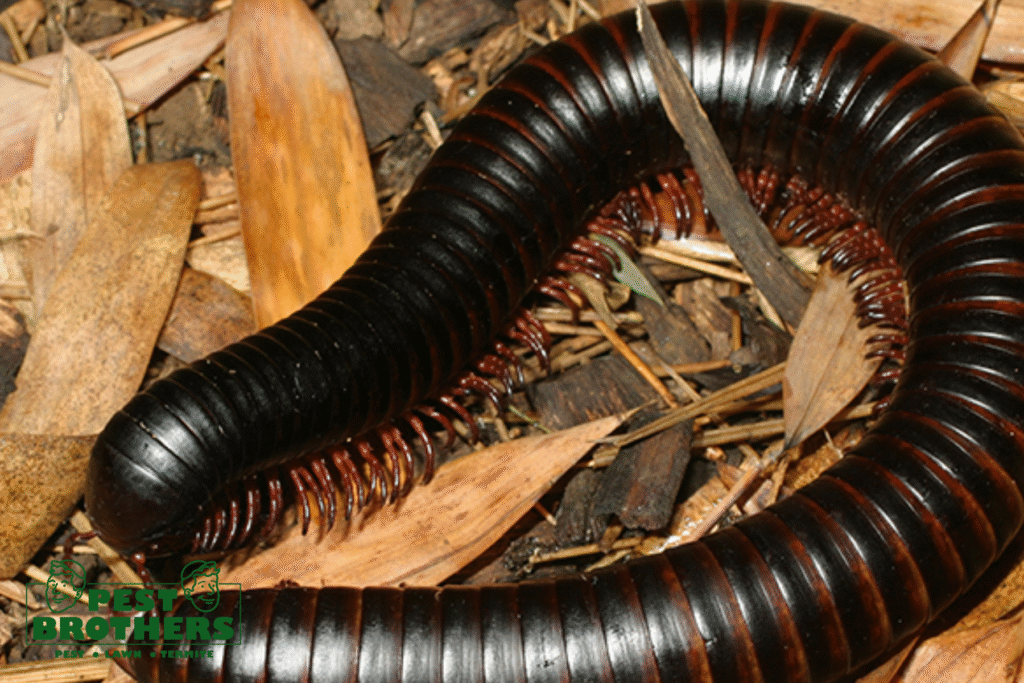
About Pest Brothers, Inc. – Pest, Lawn, & Termite Control
Pest Brothers, Inc. is a licensed and insured pest exterminator Homestead FL services company proudly serving Florida. We specialize in general pest control, termite treatments, rodent and wildlife removal, and lawn care services. Whether you’re dealing with ants, spiders, millipedes, or more, our integrated approach ensures you get effective, safe, and long-lasting results.

